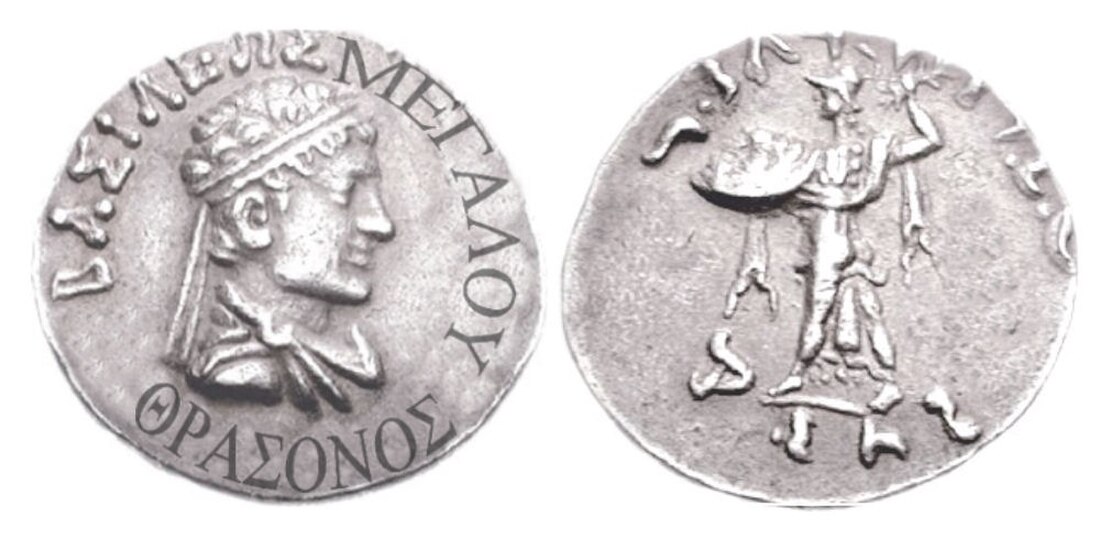Thraso
Indo-Greek king From Wikipedia, the free encyclopedia
Thraso (Greek: Θράσων, Thrásо̄n) was an Indo-Greek king in Central and Western Punjab, unknown until the 1982 discovery of one of his coins by R. C. Senior in the Surana hoard. The coin is in a style similar to those of Menander I, has the same type of Athena, and shares one of Menander's mint marks. On the coin, the title of Thraso is Basileus Megas ("Great King"), a title which only Eucratides the Great had dared take before him and which is seemingly misplaced on the young boy Thraso, whose single preserved coin indicates a small and insignificant reign.
| Thraso | |
|---|---|
 Simulation of Thraso coin based on description by Bopearachchi, 1991 (actual coin image non published). Obv: Diademed king to the right, with coat attached on right shoulder. Greek Legend: ΒΑΣΙΛΕΩΣ ΜΕΓΑΛΟΥ ΘΡΑΣΟΝΟΣ [1] Rev: Athena Alkidemos moving to the left, left arm holding a horizontal shield, right arm holding thunderbolt. Legend Maharajasa mahatasa / Thrasasa[2] | |
| Indo-Greek king | |
| Reign | 95–80 BCE |
Osmund Bopearachchi suggests a preliminary dating of 95–80 BC, but Senior himself concludes that Thraso was the son and heir of Menander (c. 155–130 BC), since his coin was not worn and was found in a hoard with only earlier coins.[3]
It seems as though the child was briefly raised to the throne in the turmoil following the death of Menander, by a general who thought the grandiloquent title might strengthen his case.
Notes
References
Wikiwand - on
Seamless Wikipedia browsing. On steroids.
